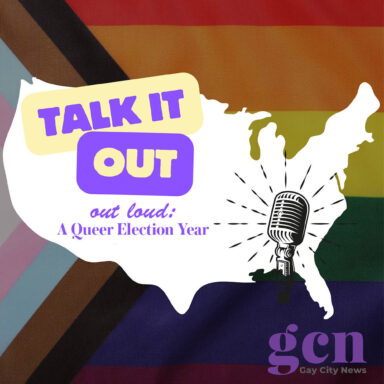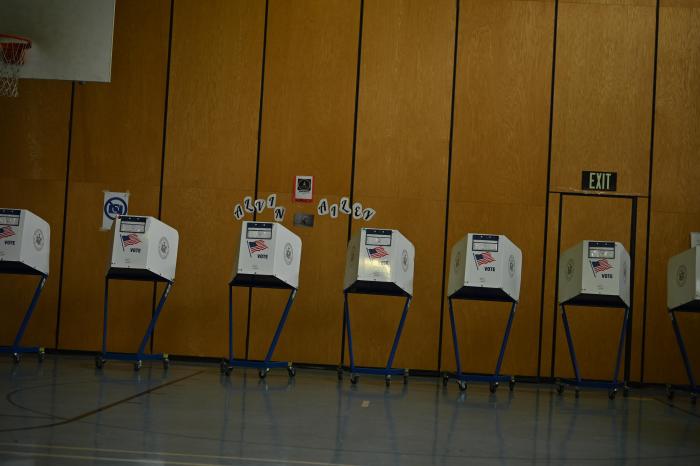Mayor Bloomberg unveiled a residential parking permit plan on Wednesday to bolster his controversial proposal to charge Manhattan-bound drivers a “congestion-pricing” fee — and the permits quickly had the desired effect, swaying two ambivalent Brooklyn lawmakers toward supporting the fee.
The mayor’s congestion-pricing proposal, which would charge $8 to enter Manhattan, has been under fire from Brooklyn elected officials for ignoring the possibility that many drivers would avoid the fee by parking in and around Downtown Brooklyn and continuing their commutes from there.
Officials said the residential parking permit plan should ease that concern.
Indeed, hours after the mayor’s announcement on Wednesday, skeptical Councilmembers Letitia James (D–Fort Greene) and Bill DeBlasio (D–Park Slope) both said they were now more likely to vote in favor of congestion pricing.
“I’m leaning more towards supporting it, but I still have some outstanding issues,” said James.
DeBlasio called the mayor’s proposal “a step in the right direction.”
“This is certainly one of the things I said would have to happen for me to even consider supporting congestion pricing,” he said.
James and DeBlasio aren’t the only ones altering their stances. The city’s sudden call for parking permits is itself a U-turn from a year ago. But the city’s refusal to consider the permit evaporated after the mayor unveiled a congestion pricing plan that elicited howls from residents of neighborhoods on the edge of the toll zone.
Some Brooklynites wish the city had just stuck to its guns.
“The necessity for residential parking permits is minimal,” said Fredrik Anderson, a Fort Greene resident. “With alternate-side-of-the-street parking four days a week in Fort Greene, people who commute can’t park here on any day but Wednesday. [And] residential parking is so complicated and so difficult to enforce.”
Aaron Brashear, a Greenwood Heights activist, added that the plan was “just a bunch of bulls—.”
“[If Park Slope got parking permits] suddenly Windsor Terrace, Greenwood Heights, and Sunset Park would become parking lots,” said Brashear, who owns a car.
“We’re already seeing people do the park-and-ride in our area. And there’s no congestion pricing yet.”
But Transportation Commissioner Janette Sadik-Khan said that 77 percent of the 350 people who attended a dozen city-held workshops approved of a residential parking permit program.
Bill Harris, a Boerum Hill resident, was one of them. A member of Community Board 2, he said permits “will help all of Downtown a great deal.”
“It will help us resolve the parking problems that we have here,” said Harris, though he added that the city would also have to follow through on the mayor’s commitment to cut down on city employees with parking passes.
Supporters also point out that a number of other cities, including Washington D.C. and Chicago, have similar residential parking permit plans.
The residential parking permit plan would allow community boards to propose zones where parking would be off-limits to all but residents during 90-minute periods that coincide with rush hours.
“Our proposed congestion pricing plan will include a system of setting up residential parking permit zones, if the communities want them,” said Bloomberg, standing at the corner of Bergen and Bond streets in Boerum Hill, a neighborhood with a notorious lack of parking.
The mayor showed off a sample street sign: “Resident permit parking only, 10 am to 11:30 am, Mon–Fri.”
Many residents and elected officials in such neighborhoods have long seen parking permits as a solution to the problem.
But their excitement about Wednesday’s announcement was dampened because the fate of parking permits is tied to congestion pricing plan, which faces huge barriers in Albany — if it ever gets to the state legislature from the City Council, that is.
A New York Times poll in early March showed that only 12 of the city’s 51 Councilmembers were prepared to vote for the legislation. Twenty, including James, said they would vote “no.”
Another 11, including DeBlasio, were undecided.
Bloomberg says congestion pricing is necessary in order to ease gridlock in Manhattan as well as provide a new funding stream for mass transit.
But a number of aspects of mayor’s parking permit plan remain unresolved. Officials said the Council would be left to wrestle with issues like the price of permits, whether area merchants would get them, and whether a resident would be able to get permits for multiple cars.
One thing remains clear — parking in Brownstone Brooklyn is difficult.
Last year, a Transportation Alternatives study revealed that nearly half of the cars on Seventh Avenue in Park Slope at any one time are looking for parking.
And a study commissioned in 2006 by the Downtown Brooklyn Partnership revealed that at any given time, Fort Greene has 1,759 cars trolling for 1,089 spots, while Boerum Hill has 1,996 cars looking for 1,769 spots.
Councilman David Yassky (D–Brooklyn Heights), one of the staunchest supporters of residential parking permits, remains optimistic that congestion pricing, with the permits, will at least pass the Council.
“I think it’s more likely than not,” said Yassky, who is running for Comptroller next year. “The way I count votes, a majority of the Council will vote to support the plan.”




















